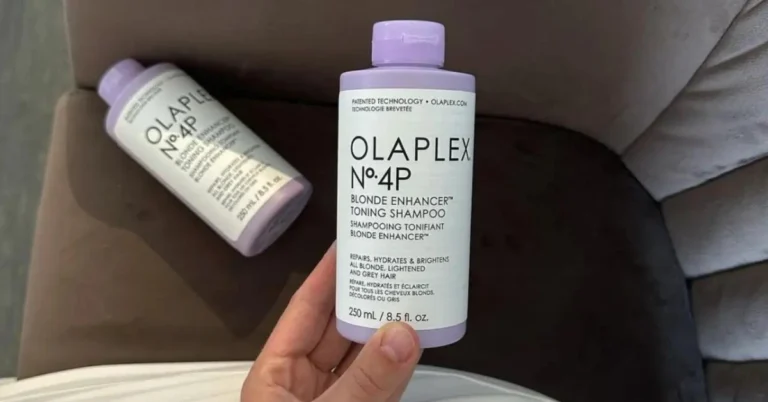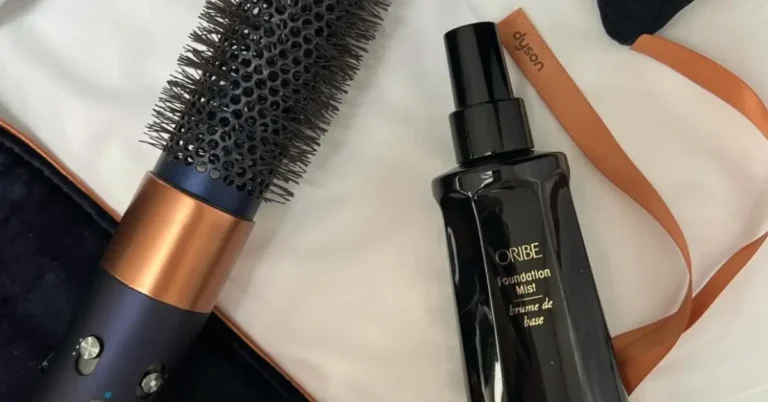Do you share my concern about the unknown components in your shampoo? This concern is widespread among many. Recently, I noticed the term “parabens” highlighted on the product labels. What exactly are parabens, and is it something we need to worry about in our hair care items?
Well, the good news is I’ve embarked on a journey of discovery, and I’m here to take you along. Together, we’ll unravel the enigma behind parabens in shampoo. No more confusion, no more uncertainty.
I promise you this: by the time you finish reading, you’ll not only understand what parabens are but also whether they should be a part of your hair care routine.
Table of Contents
What Are Parabens in Shampoo
So, what are parabens in shampoo? Parabens are a group of synthetic compounds that are added to products to prevent the growth of bacteria and mold. They are often used in shampoos, conditioners, and other hair care products to extend their shelf life. While parabens have been used for decades, there is some concern about their safety and potential health risks.
Despite their widespread use, some studies have suggested that parabens may disrupt the body’s hormonal balance and potentially increase the risk of certain cancers. However, the scientific community is divided on the matter, and more research is needed to fully understand the potential risks of parabens in shampoo and other personal care products.
Understanding Parabens

What exactly are parabens? And are they harmful to our health? As someone who’s always been curious about the chemicals we put in our bodies, I’ve done some research on this topic. Here’s what I found.
Chemical Composition of Parabens
Parabens are a group of synthetic compounds that are commonly used as preservatives in cosmetics and personal care products, including shampoo. They’re added to these products to prevent the growth of bacteria, mold, and other harmful microorganisms that can spoil the product and potentially harm the user.
The chemical structure of parabens is similar to that of the hormone estrogen, which has led to concerns about their potential impact on our health. However, studies have shown that the amount of parabens used in personal care products is generally too low to cause any harm.
Types of Parabens
There are several different types of parabens, including methylparaben, ethylparaben, propylparaben, and butylparaben. These compounds vary in their chemical structure and properties, but they all serve the same function as preservatives in personal care products.
Methylparaben is the most commonly used paraben in cosmetics and personal care products, including shampoo. It’s been approved by regulatory bodies and is generally regarded as safe for use in these products.
While some people may be concerned about the use of parabens in personal care products, it’s important to remember that they’ve been extensively studied and are considered safe by regulatory bodies. However, if you’re still concerned about the use of parabens in your shampoo or other personal care products, there are plenty of paraben-free options available on the market.
Pro Tip: If you’re looking for a paraben-free shampoo, read the label carefully and look for ingredients like benzyl alcohol and salicylic acid, which can serve as natural preservatives in personal care products.
Role of Parabens in Shampoo
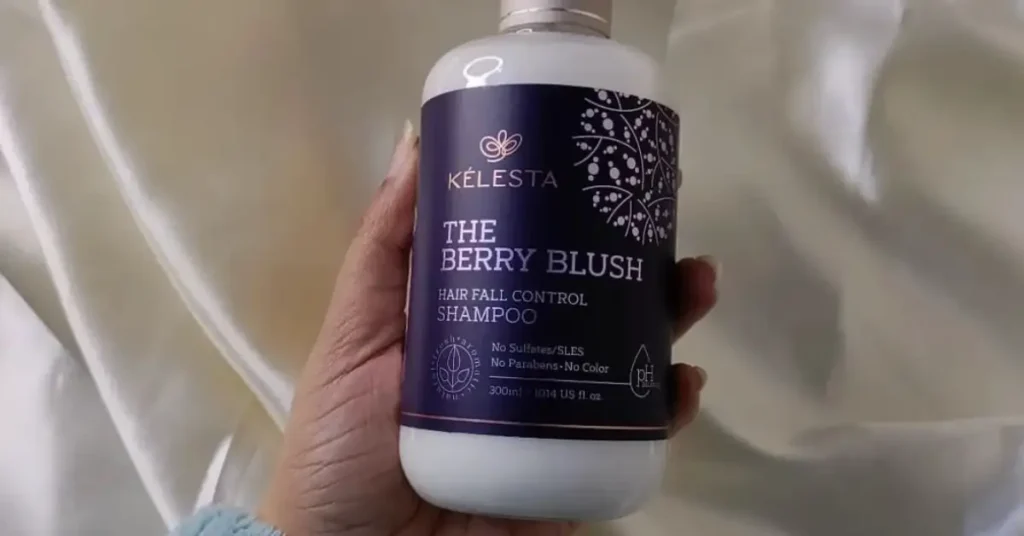
As I researched what parabens in shampoo, I learned that parabens are a type of preservative commonly used in personal care products, including shampoos. They are added to prevent the growth of bacteria, mold, and yeast, which can cause the product to spoil and become unsafe for use.
Preservative Function
Parabens are effective at preventing microbial growth, which helps to extend the shelf life of shampoos and other personal care products. This means that the product can sit on store shelves for longer periods of time without going bad. Without preservatives like parabens, shampoos would have a shorter shelf life and would need to be replaced more frequently.
Impact on Shelf Life
Parabens play a crucial role in extending the shelf life of shampoos, but they can also have some negative effects. Some people may experience allergic reactions or skin irritation when using products that contain parabens. Additionally, there is some concern that parabens may disrupt the endocrine system and interfere with hormone function.
To avoid the potential negative effects of parabens, some people choose to use paraben-free shampoos. There are many options available, and it’s important to read the label carefully to ensure that the product does not contain any parabens.
In my personal experience, I have found that using paraben-free shampoos has helped to reduce the irritation and sensitivity that I used to experience when using products that contained parabens. Additionally, I have found that paraben-free shampoos are just as effective at cleaning and nourishing my hair.
Controversies Surrounding Parabens

Parabens are a common preservative found in many personal care products, including shampoo. However, there have been controversies surrounding their safety and environmental impact. In this section, I will explore these controversies and provide some insights into the potential risks associated with parabens.
Health Concerns
One of the main controversies surrounding parabens is their potential health risks. Some studies have suggested that parabens can disrupt hormones and may be linked to breast cancer.
However, these studies have been limited and inconclusive, and more research is needed to determine the true extent of the risks associated with parabens.
Despite the lack of conclusive evidence, many people are choosing to avoid products containing parabens as a precautionary measure. If you’re concerned about the potential health risks associated with parabens, look for shampoo that is labeled as paraben-free.
Environmental Impact
Another controversy surrounding parabens is their potential impact on the environment. Parabens are not biodegradable and can accumulate in waterways, potentially harming aquatic life. In addition, parabens can enter the food chain when animals consume contaminated water.
To reduce your environmental impact, consider using a shampoo that is free of parabens. Alternatively, look for products that use natural preservatives, such as essential oils or vitamin E.
I have noticed that switching to paraben-free shampoo has made a noticeable difference in the health of my hair. My hair feels softer and more manageable, and I’ve had fewer issues with dryness and breakage.
Remember: When shopping for paraben-free shampoo, read the label carefully. Some products may claim to be paraben-free but still contain other harmful chemicals. Look for products that are made with natural ingredients and free of synthetic fragrances and dyes.
Expert Opinions about Parabens in Shampoo
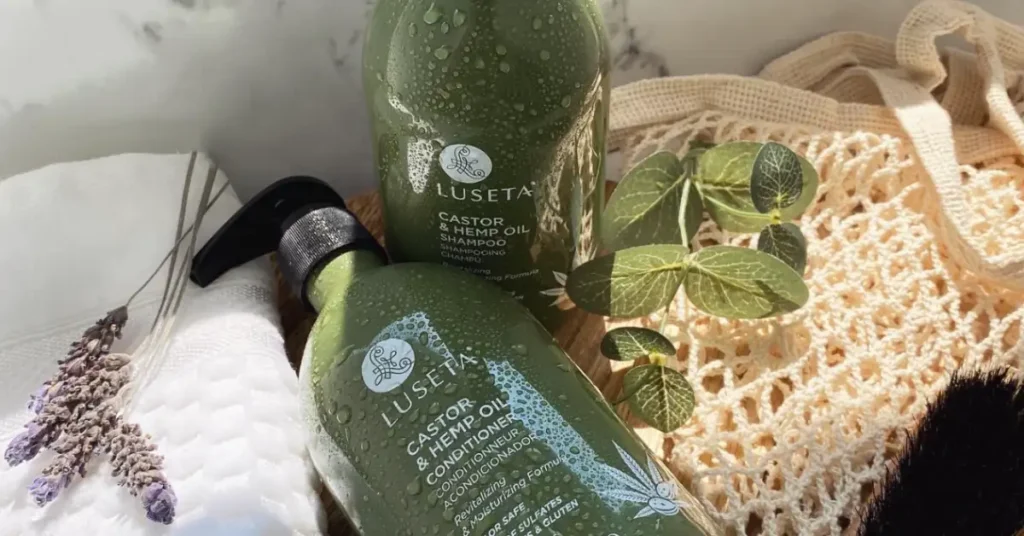
As I researched about parabens in shampoo, I came across various expert opinions on the topic. Here are some of the key points that I found:
According to an article on myimperfectlife.com, parabens are chemical preservatives that are used in many personal care products, including shampoo. They help to prevent the growth of bacteria and mold in these products, which can extend their shelf life.
However, some experts are concerned about the potential health risks associated with parabens. For example, a report from the non-profit Environmental Working Group (EWG) states that parabens have been linked to hormone disruption, which can increase the risk of breast cancer and reproductive toxicity.
Despite these concerns, the EWG notes that the scientific evidence linking parabens to health risks is not yet conclusive. In addition, many personal care products have been reformulated in recent years to remove parabens, and there are now many paraben-free options available on the market.
If you are concerned about the potential risks of parabens, you may want to consider switching to a paraben-free shampoo. Some popular brands that offer paraben-free options include Aveda and Briogeo.
However, it’s important to note that not all chemical preservatives are necessarily harmful. Some, like phenoxyethanol, are considered to be safe in small amounts. Ultimately, the decision to use a paraben-free shampoo is a personal one and should be based on your own individual preferences and concerns.
Alternatives to Parabens

As awareness of the potential harmful effects of parabens in shampoo grows, many consumers are looking for alternatives. Fortunately, several natural preservatives and paraben-free shampoos are available on the market.
Natural Preservatives
One option is to look for shampoos that use natural preservatives. These can include ingredients like grapefruit seed extract, which has antimicrobial properties, and rosemary extract, which can help extend the shelf life of products.
Other natural preservatives that are commonly used in cosmetics and personal care products include vitamin E, tea tree oil, and neem oil.
Paraben-Free Shampoos
Another option is to look for shampoos that are specifically labeled as paraben-free. Many companies now offer paraben-free versions of their products, so it’s easy to find a shampoo that fits your needs. Some popular paraben-free shampoos include:
- OGX Renewing + Argan Oil of Morocco Shampoo
- Aveeno Pure Renewal Shampoo
- Shea Moisture Coconut & Hibiscus Curl & Shine Shampoo
It’s worth noting that just because a shampoo is paraben-free doesn’t necessarily mean that it’s free of other potentially harmful ingredients. Always read the label carefully and do your research to make sure that you’re choosing a product that’s safe and effective.
What are Parabens in Shampoo: A Recap
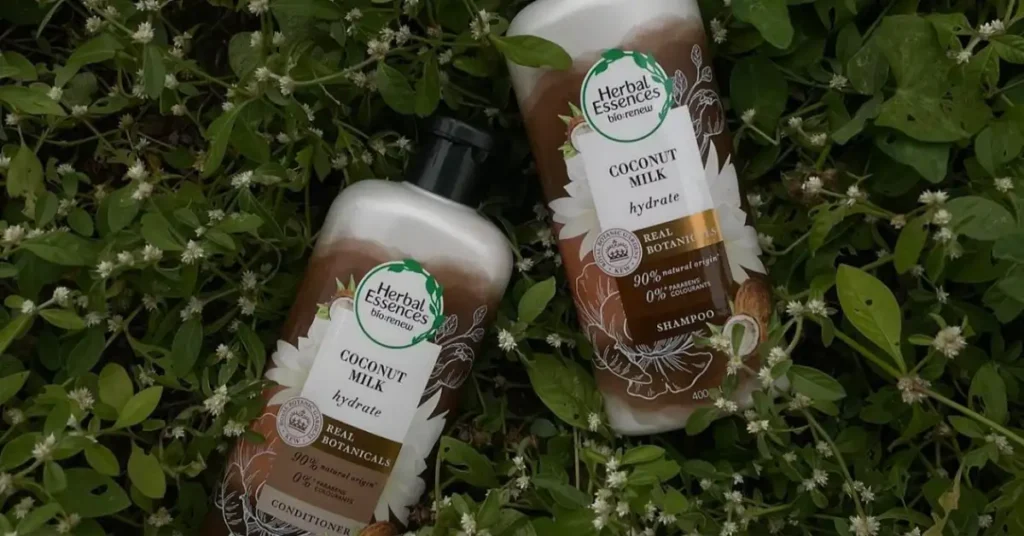
I’ve always been curious about the ingredients in my shampoo and recently stumbled upon the term “parabens.” After some research, I discovered that parabens are synthetic preservatives used in many personal care products, including shampoo.
Parabens are a type of chemical compound of para-hydroxybenzoic acid that prevents the growth of mold and bacteria in products, extending their shelf life. They can be found in many forms, including butylparaben, ethylparaben, methylparaben, propylparaben, and isobutylparaben.
While parabens are effective preservatives, some research has suggested that they may have adverse health effects. Specifically, parabens have been shown to mimic the hormone estrogen in the body, which can disrupt the endocrine system and potentially lead to cancer.
However, more research is needed to fully understand the impact of parabens on human health.
To avoid potential health risks, many people choose to use paraben-free shampoo and personal care products. In recent years, there has been a growing demand for natural and organic products that do not contain synthetic preservatives like parabens.
FAQ

What do parabens do in shampoo?
Parabens in shampoo act as preservatives, extending the product’s shelf life by inhibiting the growth of bacteria, yeast, and mold. They help maintain product integrity and ensure it remains safe for use over time.
Why are parabens bad in shampoo?
Parabens in shampoo are considered bad because they can potentially disrupt the endocrine system, mimic estrogen, and have been linked to health concerns. Their presence in personal care products raises safety and health-related questions.
Is it OK to use shampoo with parabens?
Opting for paraben-free shampoo is advisable because parabens can be absorbed through the skin and have been associated with potential health risks. Prioritizing paraben-free products is a safer choice for your well-being.
What does paraben lead to?
Similar to various other Endocrine Disrupting Chemicals (EDCs), paraben exposure has been linked to adverse impacts on reproductive health in women. Recent research has indicated associations between urinary paraben concentrations and early developments in girls such as breast development, pubic hair development, and menarche, as well as earlier genital development in boys.
What chemicals are paraben?
Parabens are a group of synthetic chemicals that commonly include methylparaben, ethylparaben, propylparaben, and butylparaben. These chemicals are often used as preservatives in various personal care and cosmetic products to extend their shelf life.
If you liked this blog article about the question: What Are Parabens in Shampoo? don’t forget to leave us a comment down below to tell us about your experience.




